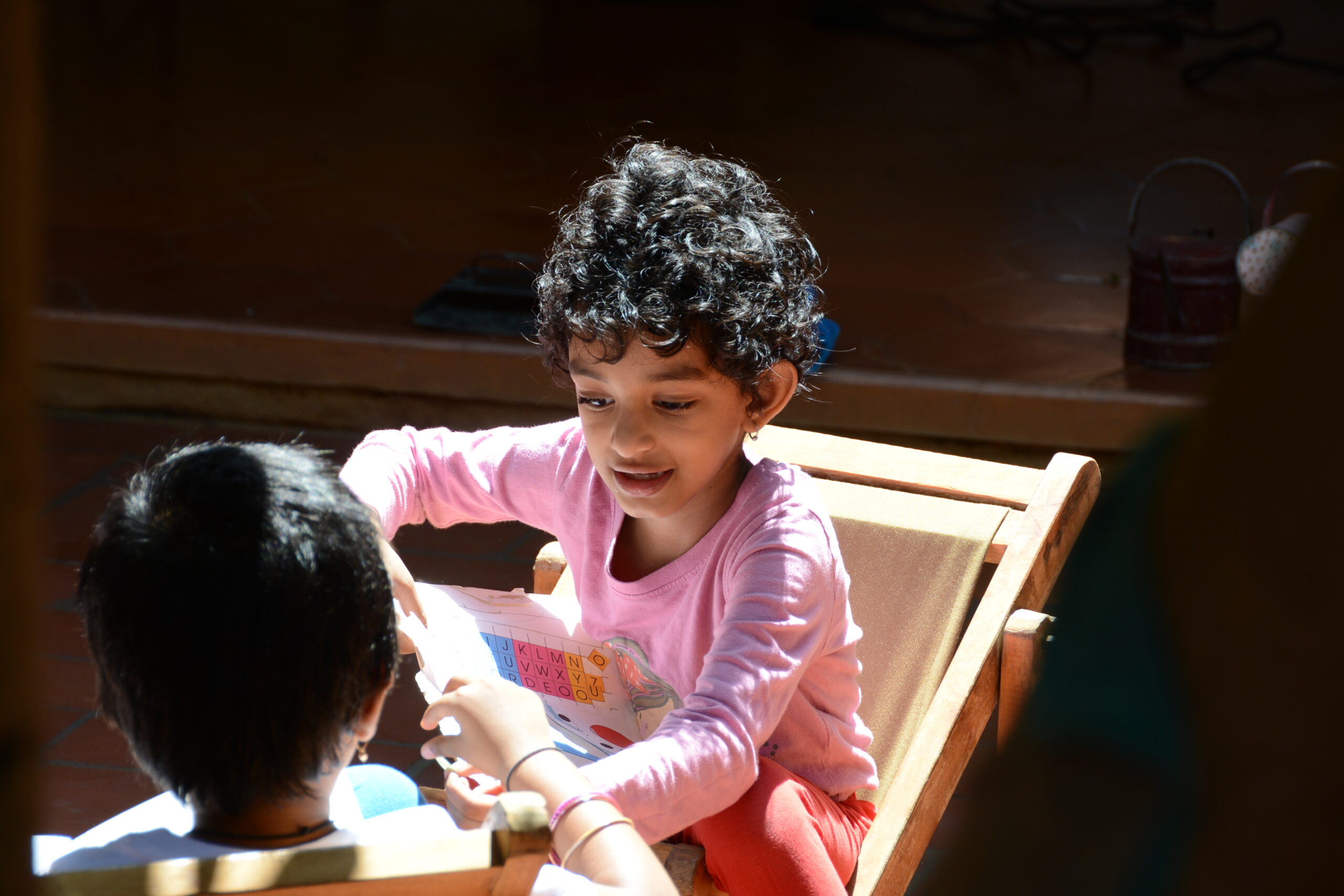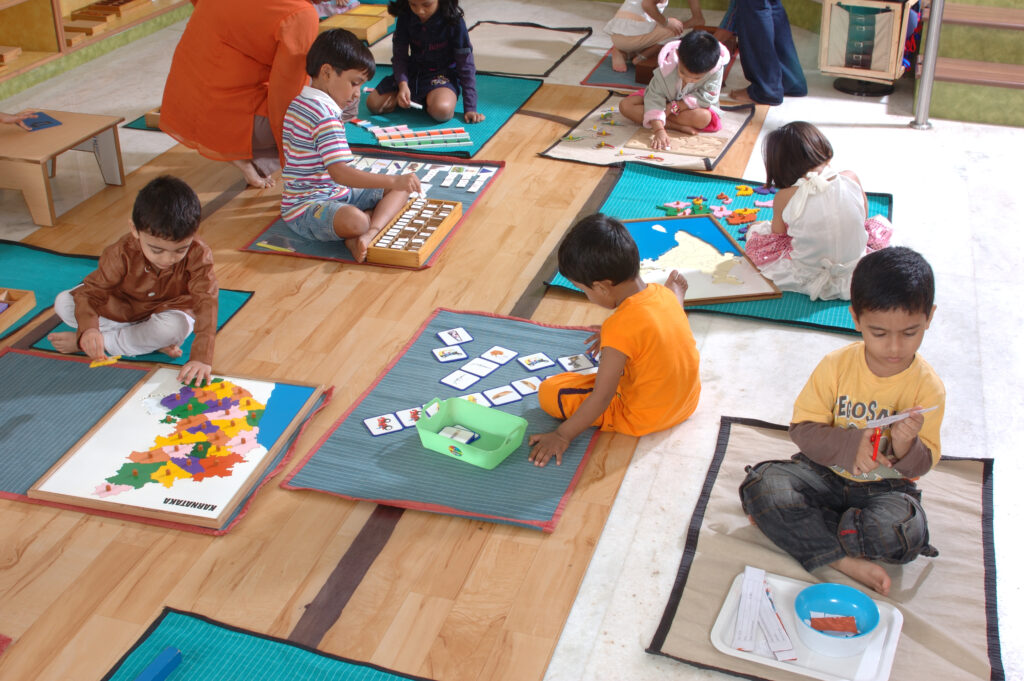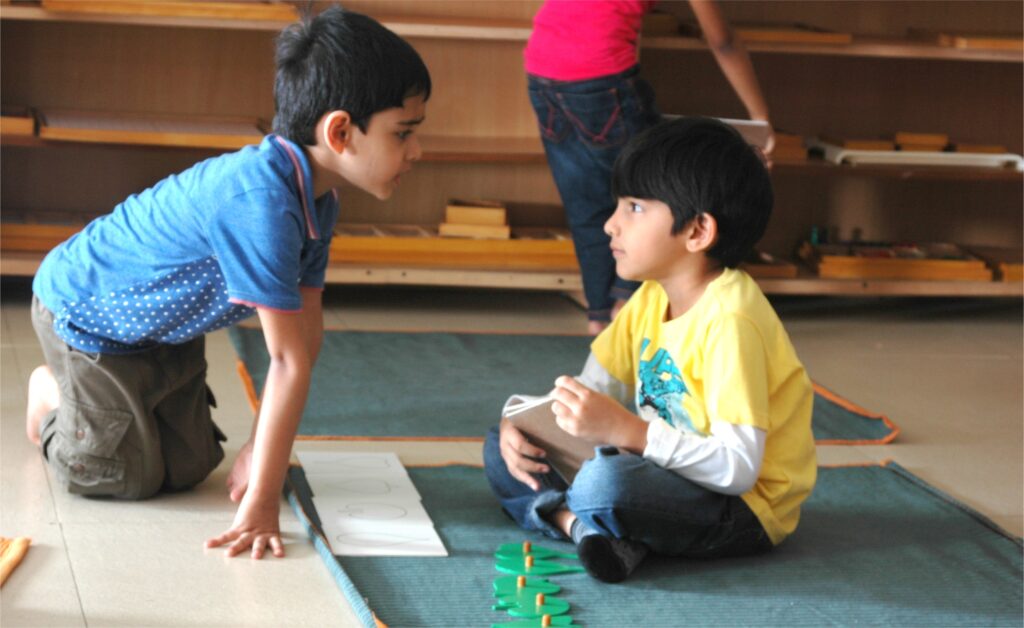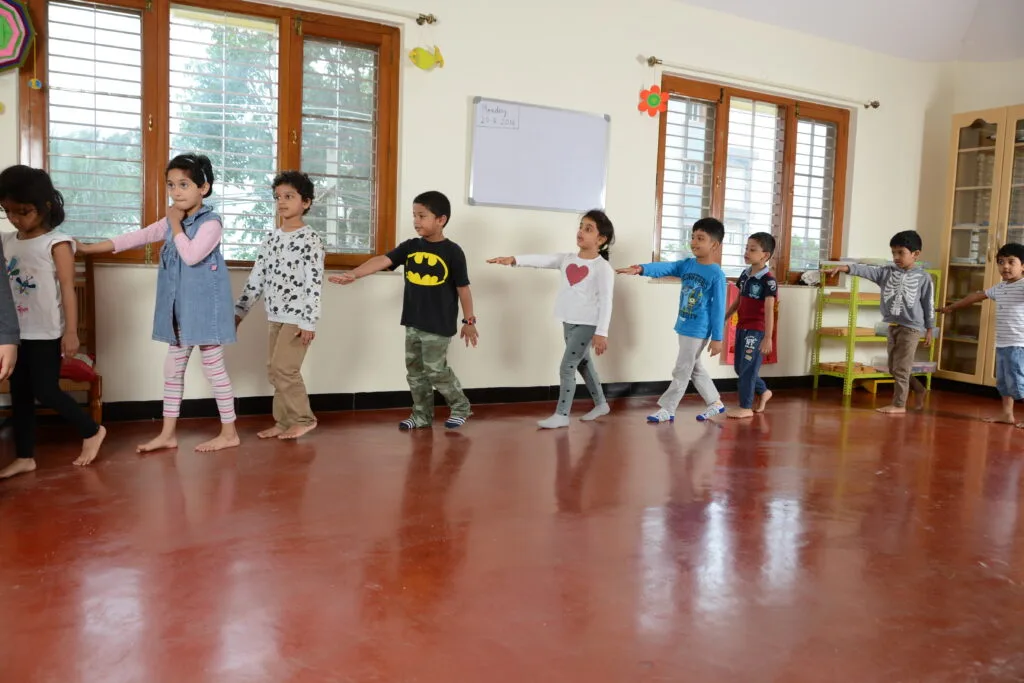– edited from an article by Mrs. Meenakshi Sivaramakrishnan
Among the several FAQs that are asked about the Montessori child one is “ the child is in the same classroom with the same teacher for three years. How will he develop? Will he not be bored?”
It is a question that can be expected from every parent who does not know Montessori. Such a concept is difficult to understand even by trained Montessorians. They find in challenging to explain the advantages of the ‘mixed age group’ concept.
Dr. Maria Montessori raises her eyebrows in wonder at why it is strange. At birth the child comes into an environment that caters to more than one generation. Sometimes even four generations!
Everyone finds finds satisfaction of his or her requirements. They live in peace. When the family expects a baby it creates a special space and accommodation for the newcomer. The environment is ever dynamic. So it is with a Montessori House of Children. That caters to several age groups. All find their needs answered. The home and the Montessori environment not only satisfy their day to day needs but also rise to the occasion when there are special needs.

We might also say that the adults living in the home are the same throughout. They do not change from year to year like in the school. There will be no difficulty for the children if the same teacher stays on for three hours! The children do not find it uncomfortable at all!
The quote from a Montessori worker – “ the Montessori child usually has the same teacher for three years. The Montessori teacher is an ‘Enlightened Generalist’, trained point for point with the curriculum. He might teach the concept of parallel geometry first. He knows he can bring it back again with the study of leaf venation – botany. Are the veins reticulate or parallel?
The Montessori adult takes quite a long time to understand every child individually. Montessori education has, for its background, the acceptance of each person as an individual. Specialists in subjects try to transfer knowledge but do not get to know the Child with all his strengths and weaknesses. This knowledge is essential to help the child working at the development. It can happen when the teacher lives with the child for more than one academic year. Remember the academic year is not the calendar year!
Montessori makes three year age groups. This gives maximum stimulation for the child. He watches and repeats activities by internalizing skills. He can do things even before he is given a presentation. That is the heritage of a Montessori environment. What a high level of thrill in learning by oneself. It adds to self dignity and self esteem. Very highly desirable qualities.


The older child gains strength of knowledge when he is able to guide the younger. He helps himself as he helps others! He humanizes his character by empathizing with the younger children. He can become more expressive. Those who are shy and introverted become outgoing and confident when they are interacting with children younger than them.
With the help of the Montessori adult all kinds and levels of learning take place maximizing the individual potential of the child. Even when group activities are thought of, multi-age grouping offers a greater variety. Because when there is a wider programme there is a wider choice. Making choices strengthens the will.
The Montessori classroom offers an opportunity for peer contact. Everyone knows the other. Multi-age unit sets on wheels, deep friendships. The children live together for more than a year and interact. That leads to a higher degree of social awareness meaning getting to know the needs of others also. Accepting that one has to honour the needs of others is a great step in social development indeed! Free verbalization leads to exchange of thoughts at different levels. How the vocabulary can expand and strengthen in a short time!
The advantages are many. This would not be complete if we did not mention the happenings during the first days after new admissions. Unless we witness, we cannot believe how older children can adopt new ones. They have lovely words to say, they keep the younger ones with them while they work, the beautiful way they offer words of consolation. It has to be seen to be believed.




